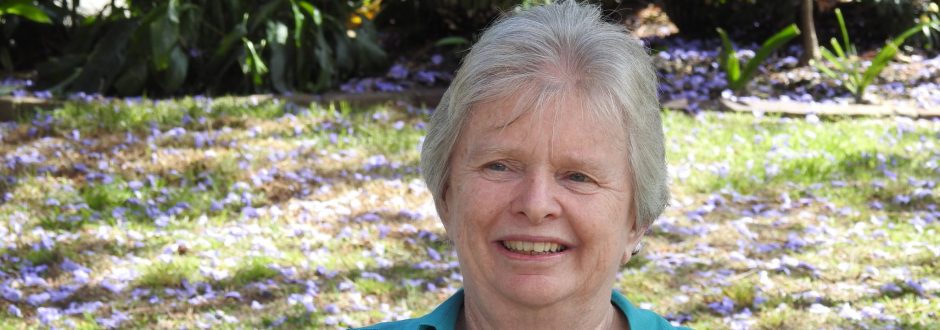What sort of change do we long for here in our country and more broadly in our world, particularly for women and children, asks Good Samaritan Sister Clare Condon.
BY Clare Condon SGS
The theme for this year’s International Women’s Day (March 8) is “Inspiring Change”. So I ask: what sort of change do we long for here in our country and more broadly in our world, particularly for women and children?
What sort of change do we seek in a world where, according to UNICEF: one in six children born are underweight; one in seven children have no health care; one in five children have no safe water; one in three children have no toilet or adequate sanitation; and 120 million children – more than five times Australia’s population – are shut out from primary school and the vast majority are girls?
Such a world needs to change.
These statistics are beyond our imagination here in Sydney, Australia and they are hard to grasp if we have not experienced the plight of people first-hand. A small example illustrates how real this situation is for some children.
Just two weeks ago a fire raced through the squatter area where the children from our Good Samaritan Kindergarten in Bacolod, the Philippines live. They are now without any of the basic resources for mere existence and the owners of the land are unlikely to let them return. For us here in Sydney, it’s hard to imagine such homelessness, such desperation. Where do these people go? What future do these children have?
It is this vast world of deprivation of the basics of life that underlies the struggle for change for promoting human rights for women and children on International Women’s Day. The change and the struggle is the call to overcome the feminisation of poverty and disadvantage.
We can feel powerless and unable to find a way to respond. But we can act! Wherever we see basic human rights violated, we can speak up and advocate. To change the situation for one other human being, especially a woman, empowers her to change the situation for another.
We can act here in our own country, Australia. In our country’s detention centres there are refugees and asylum seekers who are being held without any hope of having their claims dealt with in a humane and efficient manner. Our government and others are breaching their international obligations to refugees and asylum seekers. This is a breach of our universal obligations.
According to the Refugee Council of Australia, on December 31, 2013 there were 1,028 children in closed detention facilities; 116 of these were on Nauru. In the last few weeks many people working with refugees and asylum seekers have said that the Manus Island facility was a tragedy waiting to happen because of over-crowding, lack of facilities and lack of basic information. Developing countries like Nauru and Papua New Guinea are hosting 80 per cent of displaced persons in the world. Forty-nine of the least developed countries are accommodating 2.4 million refugees. And Australia cannot process a few thousand in a humane and effective way? What have we come to?
There are still 33,000 asylum seekers in Australia who have not had their refugee claims processed. They are in limbo in this country. They have no identity. In the recent past, 80 to 90 per cent of asylum seekers who have come here by boat have been found to be legitimate refugees. Why should it be any different now?
So what needs to change here in Australia? In our affluence and comfort have we become hard-hearted? Fear and uncertainty have prevailed. Policies of punishment have been enacted and justified under the guise of fear and hatred. Such approaches are alien to our national responsibilities to such vulnerable people and to our legal responsibilities to the human rights of others.
But dare I suggest that, for us who call ourselves Christian, our responsibilities to the poor, the weak and the persecuted are not optional extras? These responsibilities are inherent to our faith. The Church’s social justice teaching is built on the double premise of respecting the human dignity of every person and promoting the common good for all; dignity not just for me but for everyone, everywhere. I cannot be an individual in isolation. I am a member of a community or communities, whether locally or nationally. My human rights carry human responsibilities.
As Pope Francis, reminded us in his recent Apostolic Letter, Evangelii Gaudium – The Joy of the Gospel, “The dignity of the human person and the common good rank higher than the comfort of those who refuse to renounce their privileges. When these values are threatened, a prophetic voice must be raised” (EG, #218). And in the Compendium of the Social Doctrine of the Church we read: “the movement towards the identification and proclamation of human rights is one of the most significant attempts to respond effectively to the inescapable demand of human dignity” (#152).
As we continue to ponder the meaning of International Women’s Day, with this year’s theme “Inspiring Change”, might we all raise our voices against the injustices enacted on asylum seekers, especially those women and children incarcerated in detention centres in Australia and offshore?
